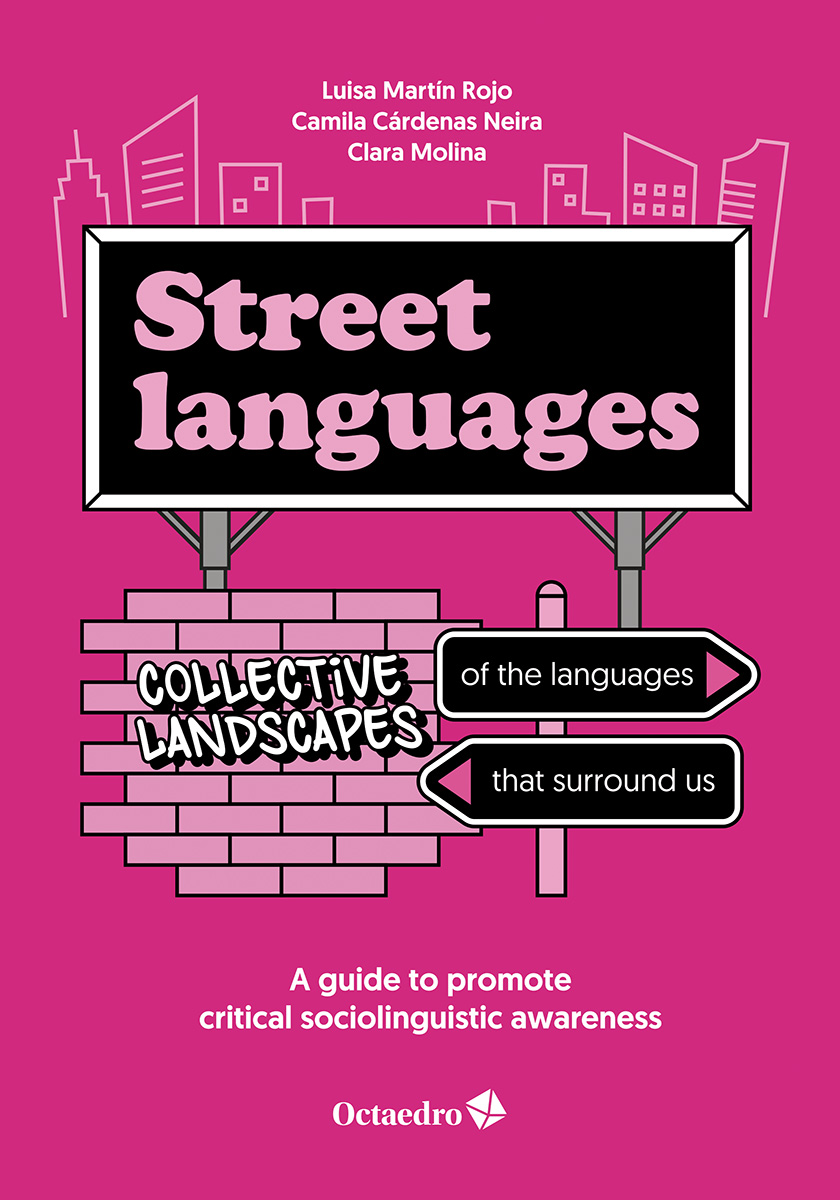FICHA TÉCNICA
EDICIÓN IMPRESA:
ISBN: 9788410282599
Referencia: 09164-0
Fecha: octubre, 2024
Encuadernación: rústica
Tamaño: 16,8 x 24 cm
Páginas: 80 a todo color
PDF:
ISBN: 9788410282605
Referencia: 09164-1
Fecha: octubre, 2024
Tamaño: 80 (3,5 MB)
Street languages: Collective landscapes of the languages that surround us
16,80€
EDICIÓN IMPRESA
Disponible en descarga gratuita:
Presentación
This guide inaugurates a series of resources to raise sociolinguistic awareness with which the EquiLing action-research project seeks to encourage collaborative participation. We want to share the results of our research with society to support all those who, whether in formal or informal educational settings, associations, or various groups, seek an integrative and open model of linguistic citizenship. The aim of this open science exercise for popular education is to focus on all those situations (very frequent, but often unnoticed) in which language plays a key role in the generation and reproduction of situations of inequality.
In an attempt to go further and address the unjust situations to which we draw attention, we share strategies and tools. Thus, we follow the conscientization method proposed by Paulo Freire of education for social change, which advocates that knowledge and reflection be understood as a collaborative and dialogical endeavor. It is, therefore, about a joint awareness that leads to action, and, to this end, we offer guidelines, recommendations, and a sequence of steps with which to implement workshops in places of study, work, or volunteering. The guide includes support material: worksheets, videos, a glossary, and a bibliography.
Índice
1. Introduction
The EquiLing project
Why this guide?
How to use this guide?
Who is this guide for?
2. What does the “Street Languages” workshop consist of?
The landscapes of the languages that surround us
What does the “Linguistic Landscape” reveal to us?
Let’s make a collective landscape of our neighborhoods and the languages in them!
Summary of the sessions
3. The workshop step-by-step
Step 1: What are we going to observe?
Step 2: Out on the street!
Step 3: Look again
Step 4: What do the streets tell us?
Step 5: Let’s act!
Step 6: Let’s show what we have learned
4. Let’s go for more: Ideas to implement other workshops
Linguistic landscapes and educational centers
Linguistic landscapes and urban protest
Final reflection
5. Toolbox
How did other groups do it?
Common notions
To learn more
Camila Cárdenas Neira, Clara Molina Ávila, Luisa Martín Rojo
9788410282599
9788410282605
09164-0
09164-1
